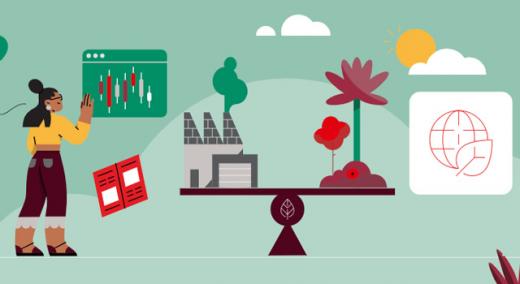Net zero is our strongest tool yet against the climate crisis. The transition to net-zero emissions presents a compelling solution that offers not only environmental benefits but also economic, social, and health advantages. Failing to act swiftly and decisively risks catastrophic climate change, including extreme weather events, sea-level rise, biodiversity loss, and disruptions to food and water supplies.
|
ADVERTISEMENT |
Let’s delve into the key reasons why embracing net zero is vital for our collective well-being:
• Tackling the climate crisis
• Protecting human health
• Driving innovation and economic growth
• Enhancing energy security
• Preserving ecosystems and biodiversity
What is net zero?
Although there may be variations in definitions of net zero, the globally agreed net-zero definition is contained in the ISO Net Zero Guidelines (IWA 42:2022). It defines net zero as “a condition in which human-caused residual greenhouse gas (GHG) emissions are balanced by human-led removals over a specified period and within specified boundaries.” Achieving this balance is a complex process involving emission reductions, offsets, and innovative technologies.
…

Comments
Nope
"Failing to act swiftly and decisively risks catastrophic climate change, including extreme weather events, sea-level rise, biodiversity loss, and disruptions to food and water supplies."
Okay, I'll say it. This is nonsense.
ISO Standard for Net Zero
I agree, this is nonsense.
ISO 50001 is constructive, Net Zero is not
Net Zero, decarbonization, and so on have so far resulted in higher costs for customers, lower wages for employees, and lower profits for investors as shown by, as but two examples, Silicon Valley Bank and Bed, Bath & Beyond. https://bedbathandbeyond.gcs-web.com/news-releases/news-release-details… "Bed Bath & Beyond is rapidly scaling its ESG strategy to be Net Zero by the year 2040."
The reason, as I see it, is that these goals and metrics divert focus, attention, and resources away from service to relevant interested parties (customers, workers, investors, and suppliers) to efforts to emulate King Canute's futile command that the tide not come in. That is, there was a time in our geologic history when there were no polar ice caps and a good part of North America was covered by the Western Interior Seaway, and another when Canada and what is now New England were covered by the Laurentide Ice Sheet. We also had the Medieval Warm Period during which Vikings discovered what they named Greenland which, while it might have been green at the time, is covered almost entirely by ice and snow today. Human carbon emission was limited, at the time, solely to fires for heat, cooking, and trades like blacksmithing. While carbon dioxide is indeed a greenhouse gas, its overall contribution to what Nature decides to do on its own is open to serious question and resources are probably far better used to adapt to climate change (as humans have done throughout history) than to try to avert it.
The behavior of attendees at the annual UN Climate Conferences (UNCOP), namely use of private planes which emit far more carbon dioxide per passenger than commercial airlines, shows meanwhile that they do not believe this is an urgent problem regardless of anything they say otherwise. I think it is far fairer to depict it as "important but not urgent" in the Eisenhower priority matrix. "Important" means deserving of indirect attention via, for example, ISO 50001:2018 which reduces supply chain costs through avoidance of energy waste. "Not urgent" means that use of resources to measure carbon footprints or, even worse, purchase carbon offsets or non-competitive renewable energy, is a waste of stakeholder resources. As renewable energy becomes more competitive, and wind, sun, and tides are indeed free, economic assessments can change accordingly.
Having said this, avoidance of energy waste, regardless of its source, delivers lower prices, higher wages, and higher profits simultaneously and this is what diligent application of ISO 50001:2018 will do. Avoided energy waste is almost certainly fungible, via the power grid, with fossil fuel energy so this has the desirable side effect of reducing carbon dioxide emissions. Henry Ford pointed out long ago that any waste of material or energy--and there were few if any laws relating to the disposal of wasted material--was wasted money so he tried to avoid making the wastes in the first place, or found ways to repurpose and sell it (e.g. waste wood as Kingsford Charcoal). My position is that ISO 14001:2015 users should pay attention to everything that is thrown away, as opposed to just environmental aspects, to get more value from it. These two standards, if used as valuable servants to improve performance, can deliver substantial bottom line results and I encourage their use.
Mostly Agree
Yes, avoidance of energy waste, and all wastes, is a good thing. But one does not need ISO standards to do so.
As for the climate conference attendees and their private planes and general "high-off-the-hog" lifestyles in general, are beyond contemptible, in my opinion.
Add new comment